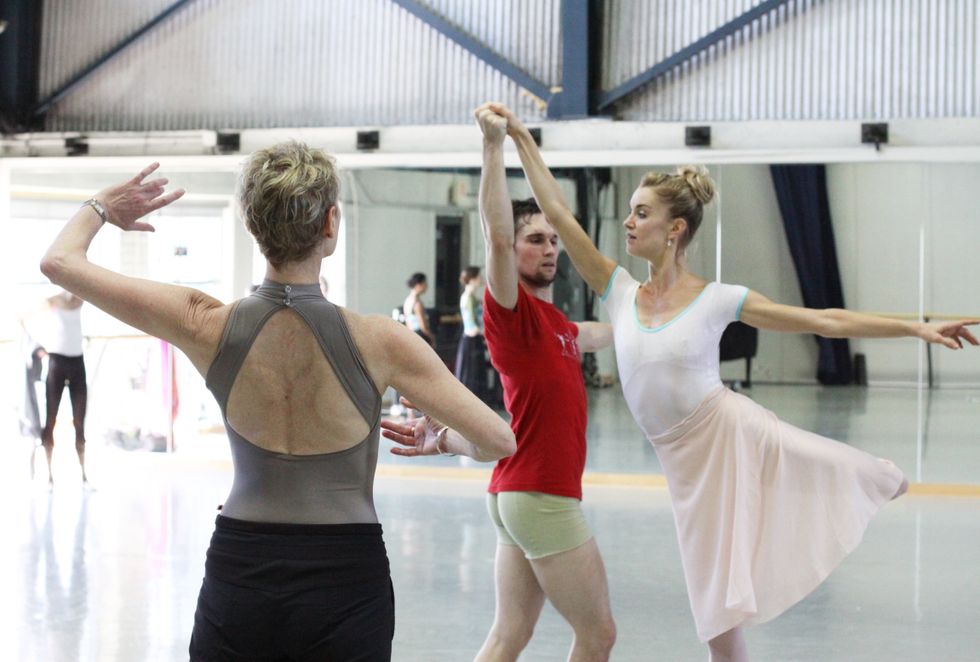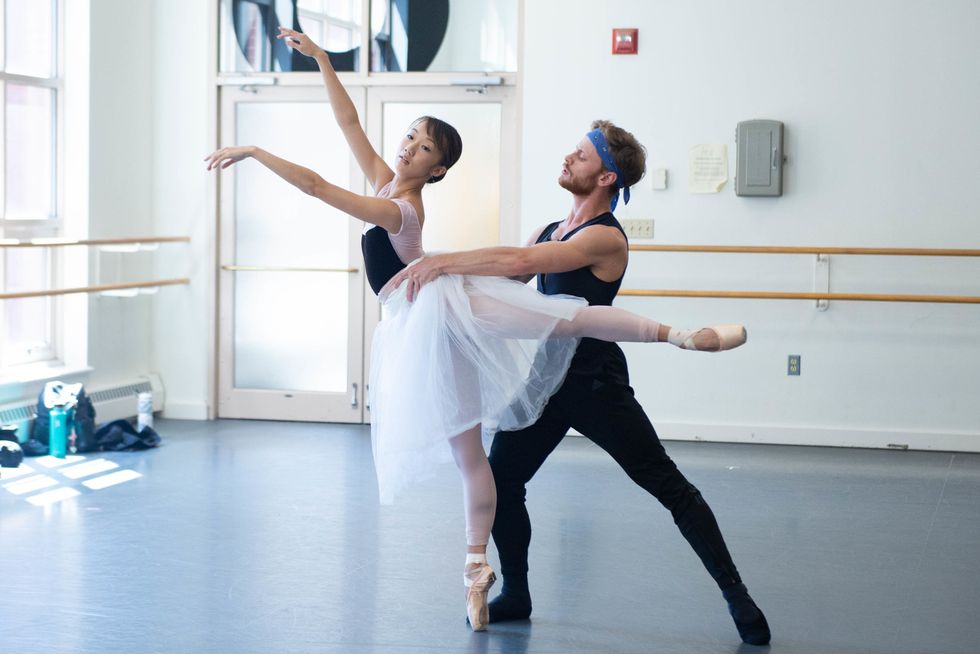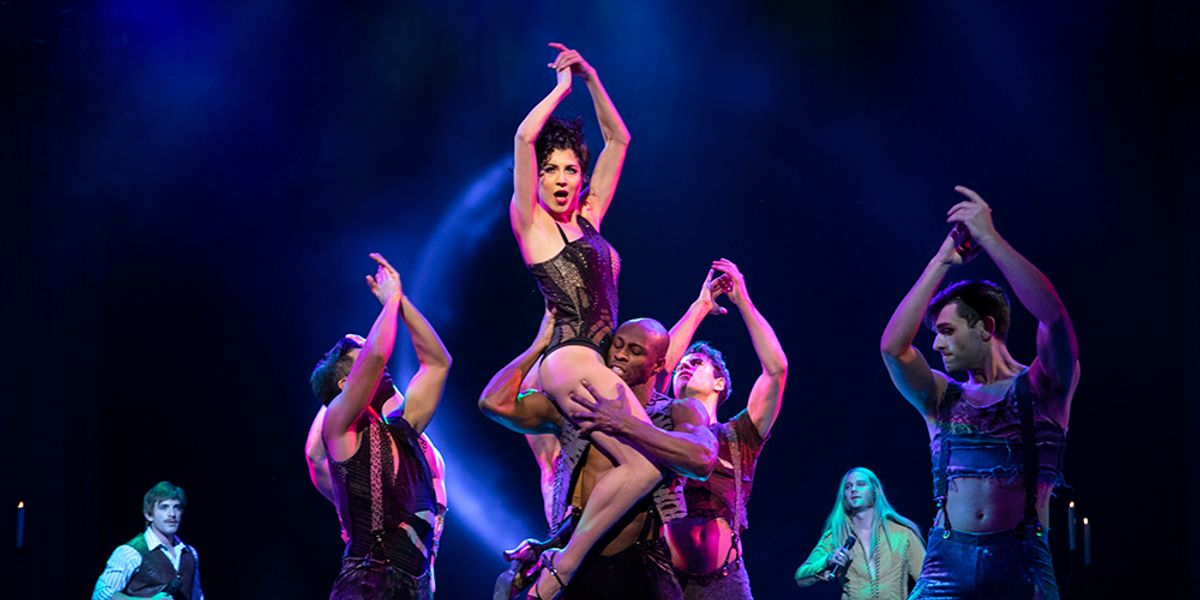Congrats, You Have Your First Solo After Years in the Ensemble. Now What?
When you’ve spent years performing ensemble work and nailing perfect unison, it can be jarring to be handed your first solo. You might feel the weight of commanding the audience’s attention all on your own, even as you reach a milestone that is meant to be a reward. Shifting your mind-set may be even more challenging if you are diving back into the corps later in the same run—or even the same show. Applying what you’ve learned from the ensemble while embracing the chance to shine as an individual is key to solo success.
Prepare to Personalize
The most empowering difference between ensemble work and solos is the chance to tailor the material to your assets, says Jerri Kumery, ballet master at Richmond Ballet. “You get to put on the choreography like clothing and make it 100 percent personal,” she says.
It can be a little scary the first time those training wheels come off and you start making your own artistic choices, says Broadway performer Ashley Blair Fitzgerald, who was the featured soloist of the “Dark Lady” number in Broadway’s The Cher Show. “Get to know the steps really well before you start advocating for your own ideas. Then every suggestion should be in service of that movement,” says Fitzgerald.

Kumery leading Richmond Ballet dancers in rehearsal for Mozartiana.
Sarah Ferguson, Courtesy Richmond Ballet
Revamp Your Rehearsal Strategy
Expect your approach to rehearsal to shift, says Chisako Oga, a second soloist with Boston Ballet who performed Giselle for the first time while also juggling ensemble roles. “For corps work, the focus of rehearsal is keeping those consistent lines—how high your leg should go or how wide your échappé should be to match the rest of the group—but for Giselle, the focus was on finding what looked best on me and getting particular about the mimes to make them believable,” she says. Oga also used rehearsal time to set her own pace. “As a soloist, I had to be careful not to use up all my energy at the top of the show, where normally keeping time with the rest of the corps would help me conserve my strength.”
Some dancers may feel anxious about receiving so much one-on-one feedback. “This may be the first time you’re not just tuning into what is being asked of the broader group,” says Fitzgerald. Remember that rehearsal should be a safe space, and that corrections are there to help you—so embrace them.
Do Some Homework
“I find that a person with a lot of information is always more confident,” says Kumery. Doing extra research into the character, origin of the musical score or history of the ballet can help you feel more prepared. “If you know who this character is, where they come from and who they love, you get the freedom to puzzle out how everything onstage affects you and informs the movement,” says Fitzgerald.
Source Energy From the Audience
You may find that you miss feeding off the energy of other dancers onstage. “You can start to feel self-conscious about trying to be just as compelling all alone,” says Oga. Tune into the energy of the audience for the boost you need. “When I’m tired or unsure of myself, I like to remember that there’s always someone out there seeing the show for the very first time, and I show up for them,” says Fitzgerald. “Pretty soon you’re totally into it and things feel right again.”

Brooke Trisolini, Courtesy Boston Ballet
Credit What You Already Know
Remember that there are plenty of lessons from the corps you can take with you—and a lot to be gained by returning to the ensemble with the fresh perspective of a soloist. “You already have plenty of experience helping to make the story come true, and 18 dancers moving in perfect unison is an incredibly powerful thing. Don’t let go of that work you’ve done as a group—use it,” says Oga. Recognize that you’ve already dealt with a different kind of pressure in the corps, says Kumery. “It’s obvious when someone is out of step, while the soloist actually has a little more freedom. If something goes wrong, you can make a choice so it doesn’t read across the footlights.”
Check Your Fears
If you’re nervous about stepping out onstage alone, talk to the artistic team sooner rather than later. “It’s normal to want to do a good job, but if your nerves really go beyond that, let us help you identify why you don’t feel ready,” says Kumery. “You wouldn’t be cast in this role if we didn’t think you could grow into it, so try to trust the process.” Remember, too, that you’re not really alone. “There is so much support all around you,” Kumery adds.
Fitzgerald agrees: “If you’re choosing this profession, the solo is probably what you’ve aspired to. All your training and every step of that road are supporting you, so cherish the journey.”




